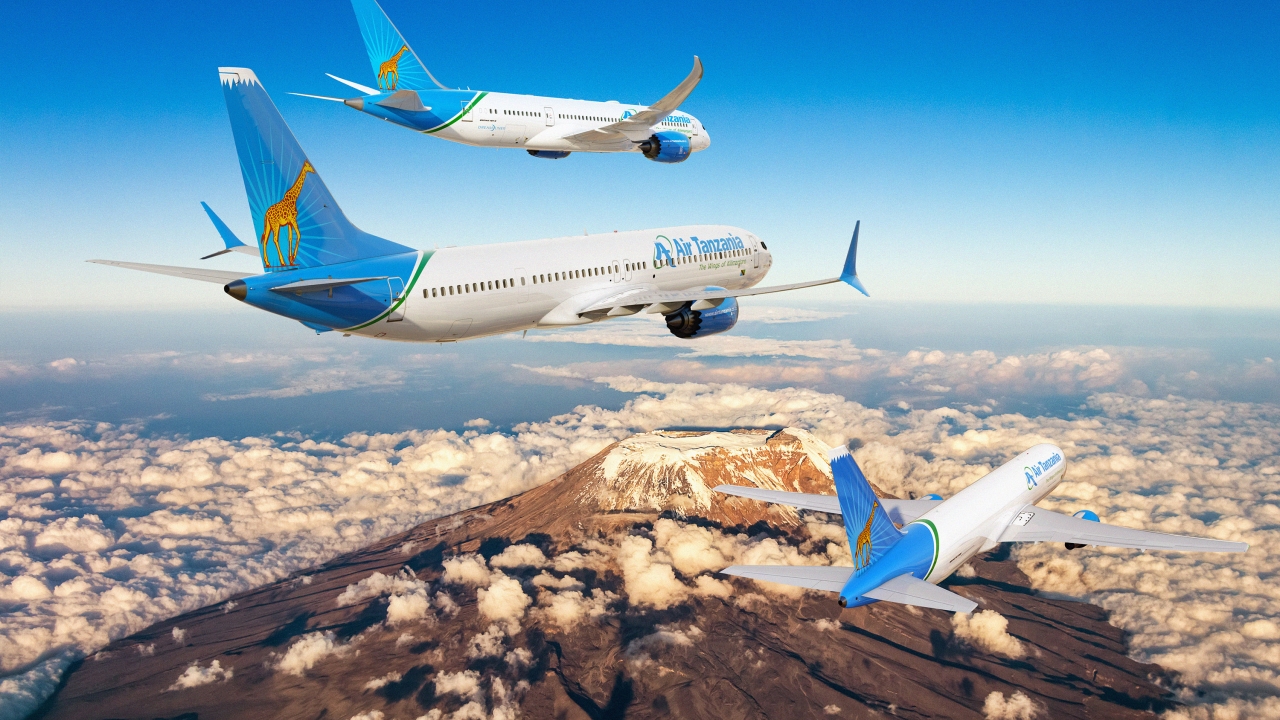A dish called Rwanda...
RwandAir hosted the recent African Airlines Association (AFRAA) annual general assembly in Kigali. Victoria Moores caught up with acting CEO, Colonel Chance Ndagano, to find out what has happened since his took over the leadership in April 2017.

Trying to get a slot with RwandAir acting CEO, Colonel Chance Ndagano, is tricky. As AFRAA host, he was a busy man, but he is even busier when it comes to RwandAir’s growth strategy.
“Airlines go through stages of growth, stabilisation and renewal. Rwanda is in the growth phase, but that growth is always driven by demand. We are still at the infant stage,” Ndagano said, when he was finally able to stop for a moment.
RwandAir is definitely growing. The airline added two Airbus A330s in 2016 and launched flights to Brussels (Belgium), Dakar (Senegal), Mumbai (India), Harare (Zimbabwe) and London Gatwick (England) in 2017.
It is also venturing beyond Kigali, creating a second hub and single-aircraft base at Cotonou (Benin).
RwandAir is starting the Cotonou operation with seventh freedom flights to Abidjan (Côte d’Ivoire), Brazzaville (Republic of the Congo) and Libreville (Gabon), with plans to extend this network to include Bamako (Mali) and Conakry (New Guinea) in next month.
But the Benin project will go even further. The Rwandan Government, which owns 99% of RwandAir, is in talks with the Benin Government to create a joint venture airline, which will operate under a new brand. Benin is planning take a 51% stake in the project, with Rwanda having the remainder.
“We are going to develop a business plan together. We are targeting six months to complete [the planning], so in less than a year we should have the business plan in place. We will launch after that. Right now, we are just in the early stages,” Ndagano said.
RwandAir was not actively seeking a regional hub but the Benin Government made the approach and it seemed like a good opportunity. The Cotonou operation will help RwandAir increase its regional connectivity in west and central Africa, but long-haul flights to Europe – particularly France – could also be on the cards for the new airline.
The Cotonou base, served by RwandAir aircraft, is aimed at laying the foundations for the new project. “We are trying to stimulate the market, so by the time it becomes a joint-venture, the network is established and passengers will know the airline and be used to it.”
Closer to home, RwandAir is pushing ahead with its 2017-2027 growth strategy, which will see the airline’s network nearly double from 24 to 47 destinations over the next 10 years. Over that time, passenger numbers are expected to increase by 10-15% per year, supporting around 12% annual revenue growth. In 2016, the airline handled 760,000 people and this will grow to 1.2 million this year. This strategy should see RwandAir hit break-even within five years.
The next step in RwandAir’s expansion will be the launch of flights to Guangzhou (China), followed by New York (USA). “We are in the process of applying for [China] permits and as soon as that process is done, we will be able to serve that route. We are looking for one [A330] to lease to be used on the China route,” Ndagano said.
RwandAir has already expanded from eight aircraft in 2015 to 12 today. These comprise two A330s, six Boeing 737-800s and -500s, two Bombardier CRJ900s and two Q400s. Ndagano said RwandAir has approached Airbus and Boeing to come up with some proposals on the A330 and 737/737 MAX respectively, although no numbers have been set and any order is still two to three years off.
He has a very pragmatic approach: “If the aircraft get filled up, maybe we need another,” he said. RwandAir is not seeking growth for growth’s sake.
Airport capacity is another limiting factor, but the Rwandan Government is already taking action. With Kigali International already modernised, but at maximum capacity, Bugesera Airport is being built. The new airport will be able to handle 1.7 million passengers in its first phase and 4.5 million in its second. Rwandan Prime Minister, Edouard Ngirente, said the first phase would be operational this year.
Training is also a pinch point, but once again this is in hand. Kigali-based Akagera Aviation, which specialises in rotary work, is looking to expand into fixed-wing pilot training. Ndagano used to be Akagera Aviation’s CEO and he set up its training facilities and standards.
RwandAir is also on the lookout for other revenue streams and is keen to build partnerships beyond its existing codeshare relationships with Ethiopian Airlines, Kenya Airways and SN Brussels Airlines. However, Ngirente said a strategic investor was “not on the cards” for now.
Stay up to date
Subscribe to the free Times Aerospace newsletter and receive the latest content every week. We'll never share your email address.

